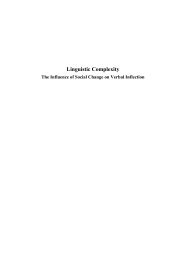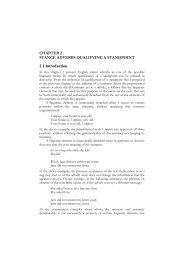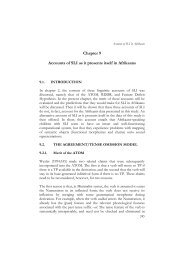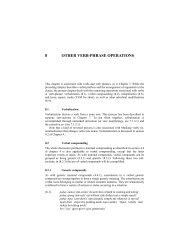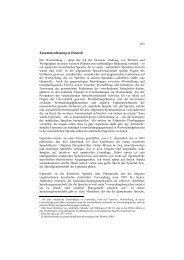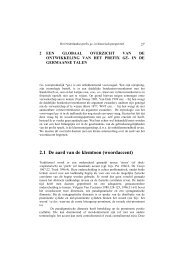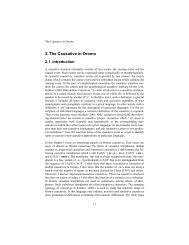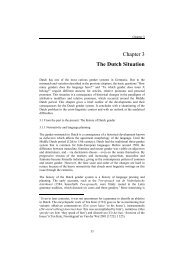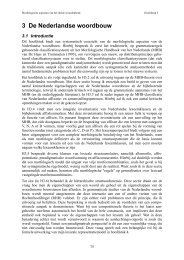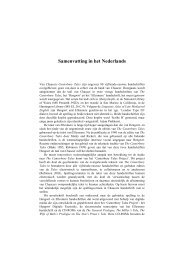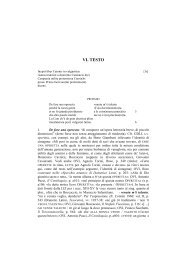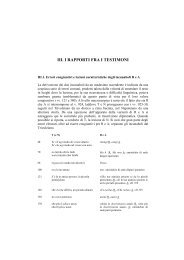Linking elements in compounds - LOT publications
Linking elements in compounds - LOT publications
Linking elements in compounds - LOT publications
Create successful ePaper yourself
Turn your PDF publications into a flip-book with our unique Google optimized e-Paper software.
THE SIMILARITY OF PLURAL ENDINGS AND LINKING<br />
ELEMENTS IN REGIONAL SPEECH VARIANTS OF DUTCH<br />
Chapter 2<br />
This chapter is a revised version of: Hanssen, E., Banga, A., Neijt, A., &<br />
Schreuder, R. (<strong>in</strong> press). The similarity of plural end<strong>in</strong>gs and l<strong>in</strong>k<strong>in</strong>g <strong>elements</strong> <strong>in</strong><br />
regional speech variants of Dutch. Language and Speech.<br />
Abstract<br />
The plural suffix -en (noot+en, ‗nuts‘) is pronounced differently by speakers from<br />
different regions of the Netherlands. In this study, we compared the<br />
pronunciation of the plural suffix -en <strong>in</strong> phrases (noot+en kraken, ‗to crack nuts‘)<br />
with l<strong>in</strong>k<strong>in</strong>g en <strong>in</strong> <strong>compounds</strong> (noot+en+kraker, ‗nutcracker‘), because some<br />
claim that both are similar (Schreuder, Neijt, van der Weide, & Baayen, 1998),<br />
while others claim that they are not (Verkuyl, 2007). The pronunciations of 109<br />
participants com<strong>in</strong>g from five regions of the Netherlands were therefore<br />
compared <strong>in</strong> a picture nam<strong>in</strong>g task. A systematic relation between the<br />
pronunciations of plural -en and l<strong>in</strong>k<strong>in</strong>g en was detected: Speakers from the<br />
Northern and Eastern regions produced [(ə)n] most often for both the l<strong>in</strong>k<strong>in</strong>g<br />
<strong>elements</strong> and plural end<strong>in</strong>gs, while speakers from the Middle and Western<br />
regions produced [ə] most often for both. For speakers from the Southern<br />
region, we found no preference to pronounce either [ə] or [ən] <strong>in</strong> <strong>compounds</strong><br />
or phrases. It is concluded that Dutch speakers often do not dist<strong>in</strong>guish plural -<br />
en from l<strong>in</strong>k<strong>in</strong>g en <strong>in</strong> their speech production. Possibly, speakers of Dutch<br />
consider l<strong>in</strong>k<strong>in</strong>g en and plural -en as the same morpheme.<br />
27



